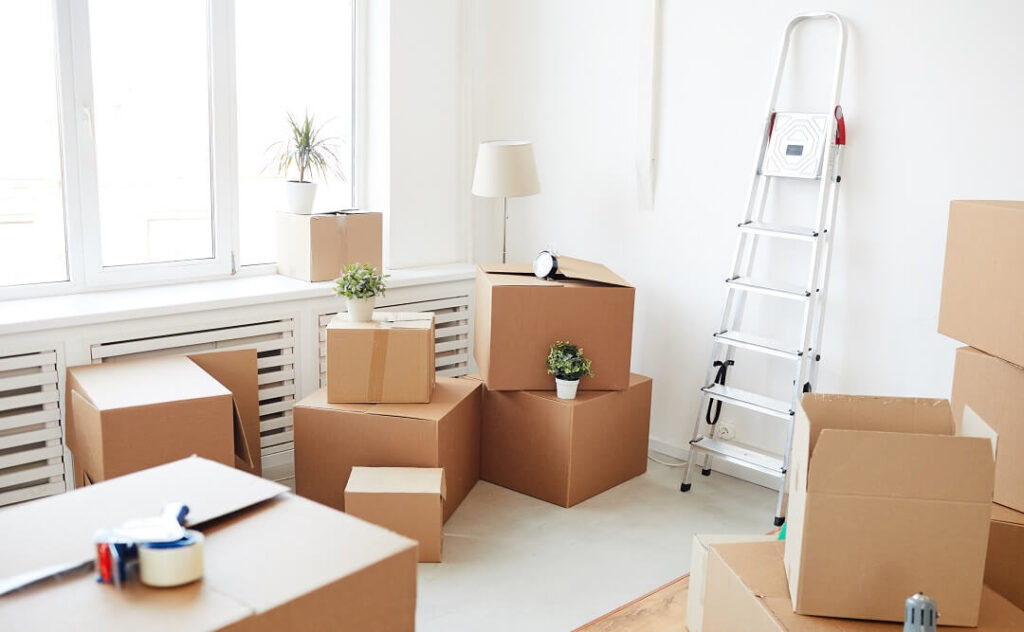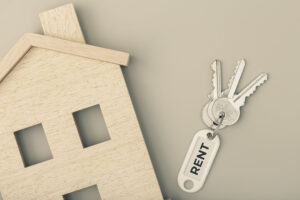Whether you are looking to move out for the first time or deciding it may be time to leave the roommates and find a place of your own, figuring out how much rent you can truly afford is the best place to start. What percent of your paycheck should go to rent? How much do you need to get an apartment? While many experts suggest you follow the 30% rule, that isn’t always possible. However, it doesn’t mean you can’t still afford your own apartment. It just takes a little planning and budgeting.
Key takeaways
- The traditional rule of thumb for determining affordable rent is the 30% rule, but it may not always be possible in today’s housing market.
- Evaluate your affordable rent rate by looking at all your monthly expenses and considering the 50/30/20 rule.
- Local housing market and lifestyle play a role in determining how much rent you can afford.
- When moving out, there are one-time expenses such as moving costs, cleaning costs, and deposits to consider.
- Saving for these expenses should be included in your temporary budget as you consider your rental affordability.
What is the 30% rule?
The traditional rule of thumb when it comes to determining how much you can afford to spend on rent is the 30% rule. This means that you should be spending no more than 30% of your before-tax income on rent. For example, if you make $60,000 a year, your monthly rent should not exceed $1,500. However, this is not always possible in today’s housing market, especially if you live in a larger city. The good news is with the right budget, you don’t always have to stay within the 30% rule.
Setting a realistic budget
A good way to evaluate your affordable rent rate is to look at all your monthly expenses. Another good breakdown to consider is the 50/30/20 rule. This breaks down to include 50% for fixed costs (rent, utilities, groceries, transportation), 30% for wants (memberships, entertainment, shopping, dining out), and 20% for goals (savings, reducing debt). This breakdown gives a little more wiggle room when compared to the 30% rule. For example, if you find a rental that includes utilities and is within walking distance to work, school, and shopping, you can afford a higher rental price because you will save in other budget areas, such as utilities and transportation.
When creating your budget to see how much rent you can afford, it is important to be realistic. If the numbers are getting tight and you are considering giving things up, such as gym memberships or regular dining out, make sure that this is something you can really live without. While you want to find a rental you can afford, you still want to be happy with your choices.
Consider your local housing market
Your local housing market plays a large role in determining how much rent you can afford and what changes you may need to make in your budget. In some larger cities, such as New York or Los Angeles, you may find that rental prices exceed 30% and, in some cases, even 50%. This may mean you need to adjust your budget further or consider looking for rentals in other nearby locations.
Think about your current lifestyle
When creating your rental budget, it is important to think about your current lifestyle and what changes you may need to make to reach your goal. If you have been living at home or with roommates, you may have had all your groceries provided for you or had to share grocery expenses. Getting into your own home will mean you have to fill your fridge, adding additional expenses to your monthly budget. This also includes things like internet service, cable or streaming services, and other monthly home expenses, including monthly rental insurance.

One-time expenses to consider
When you are looking to make the move into a rental home or apartment, there are some one-time expenses you must also consider. Saving for these expenses will need to be included in your temporary budget as you consider your rental affordability, as you don’t want to drain your savings to make your move to a new place.
Moving costs
When moving to a new location, there are many different moving costs to consider. If you are currently living in a home with your own furniture and household goods, you will have to think about hiring a mover company, a self-storage moving container, or renting a moving truck and doing it yourself. There is also the cost of packing supplies to consider, especially if it is a long-distance move. If you are hiring movers, you can expect to pay a few hundred to a few thousand depending on how far away you are moving. Even if you recruit some friends to help and do it yourself, you are still looking at snacks and beverages to thank them for their help.
In addition to physical moving expenses, moving can cause other expenses as well. If you are moving out of another rental, you will have cleaning supplies and costs to leave your previous residence in tip-top shape. In addition, moving to a new area or state means a new driver’s license and vehicle registration.
Deposits
When moving into a new home or apartment, you have multiple deposit costs to consider. While you are likely to have a deposit on your new rental, there are additional deposits that are also very common. These can include:
- Last month’s rent – In addition to an initial deposit, many rental properties also require a deposit of the last month’s rent.
- Pet deposit – If you have a dog or a cat that is allowed, you are likely to be charged an initial pet deposit. In addition, some places will also charge monthly pet rent.
- Utility deposits – Many utility companies require a deposit for new customers.
- Connection or transfer fees – Many companies, such as internet or cable providers, charge initial set-up fees or transfer fees to move your service to your new home.
Furniture and household goods
Are you moving into your first new place? Chances are you don’t have your own furniture or household goods. In addition to a new bed or couch, you will also have to consider things like sheets, towels, dishes, silverware, televisions, tables, etc. Shopping second-hand can save you money, especially if you are looking to furnish an entire home.
Is renting your only option?
While we have talked about renting and determining how much you can afford, the truth is you may be able to get more for your money if you purchase a home instead of renting. In fact, there is a chance your mortgage can be less than your rental budget.
Don’t think you can qualify to purchase a home? The team at Hero Home Programs is committed to helping renters get the home financing they deserve. Over time, purchasing a home saves you money and provides a solid investment. To learn more about how our team can help, contact Hero Home Program today.












